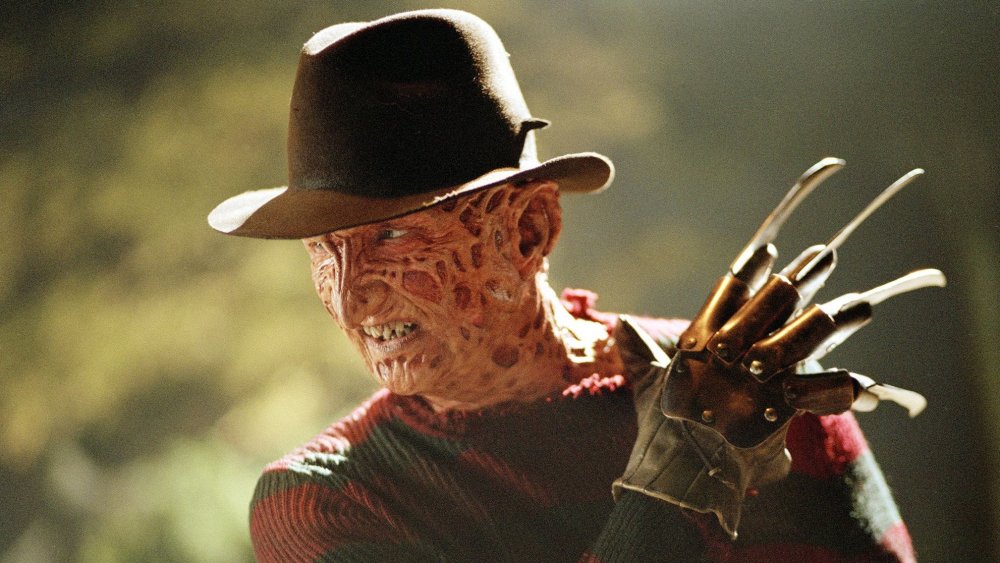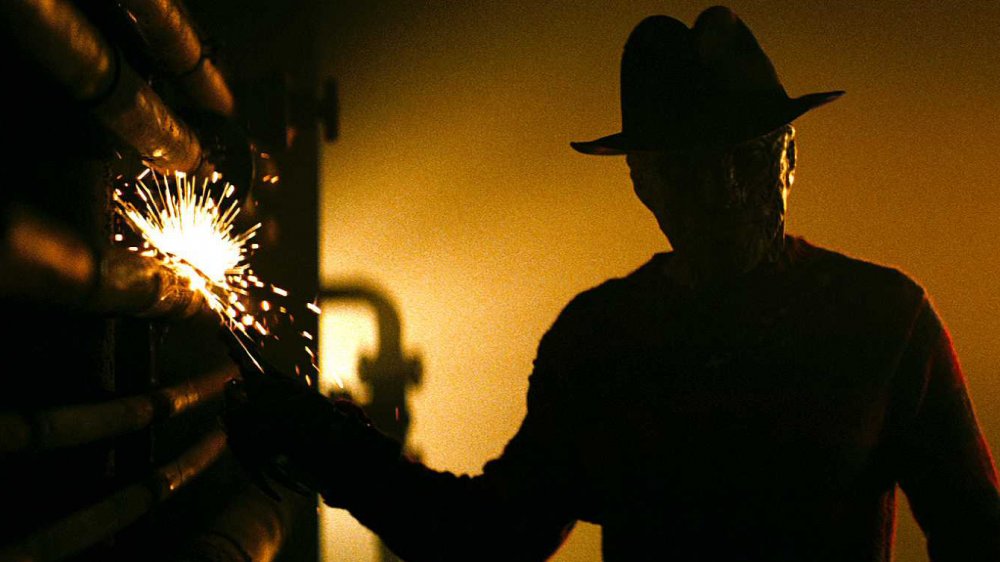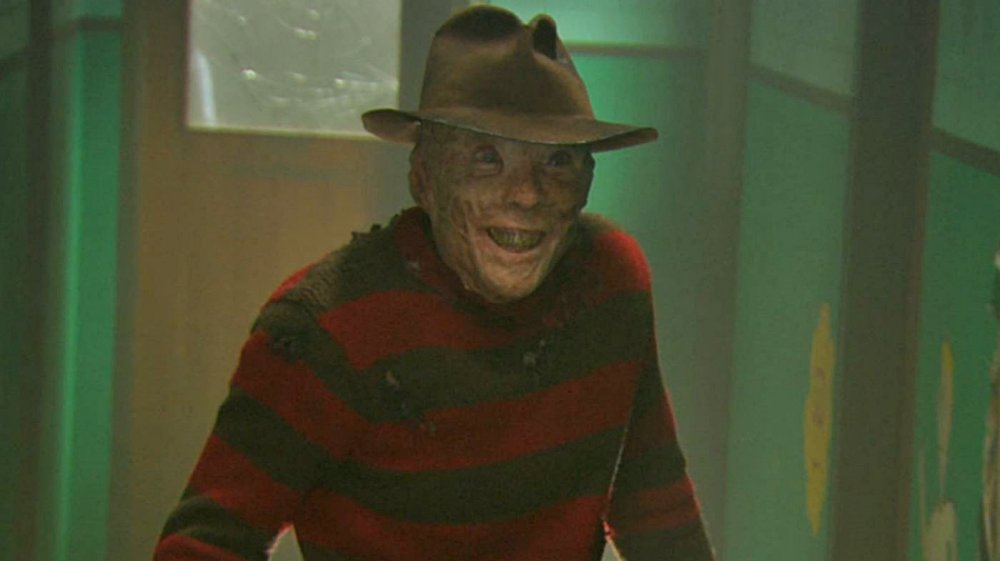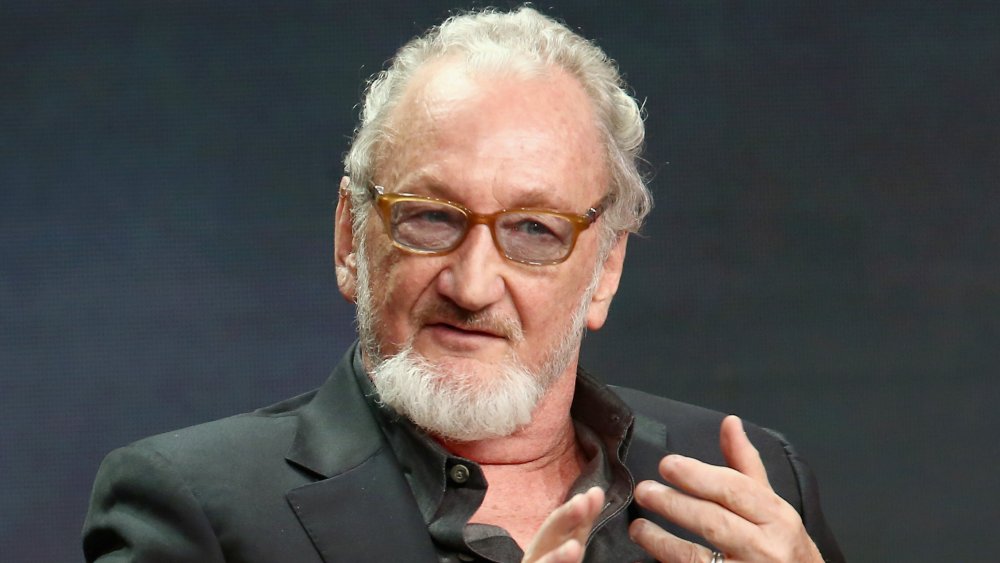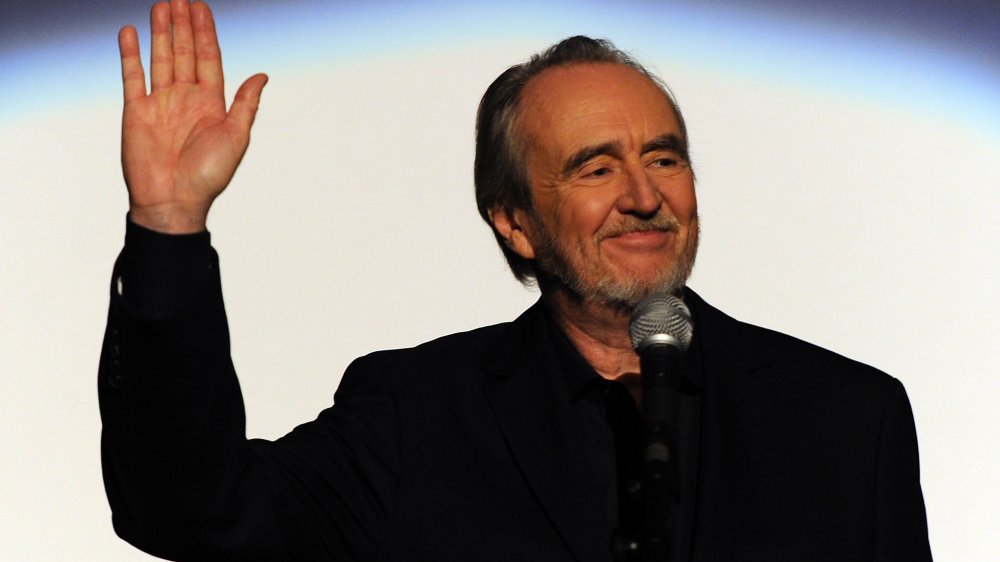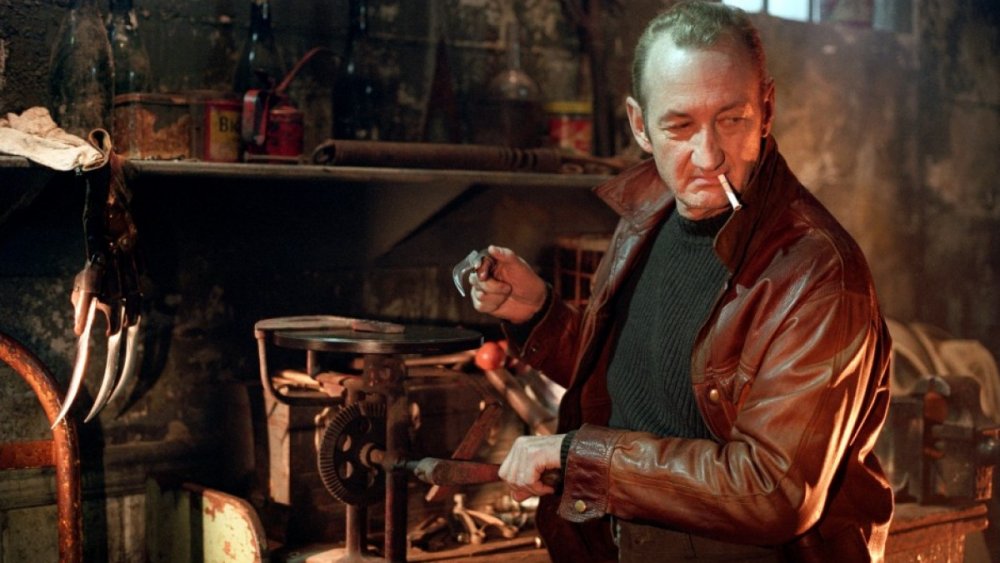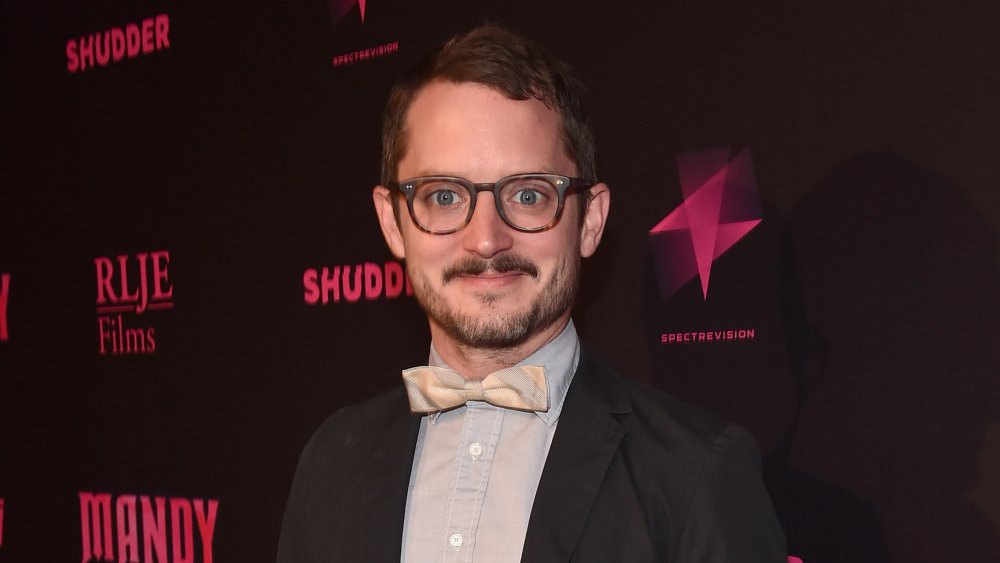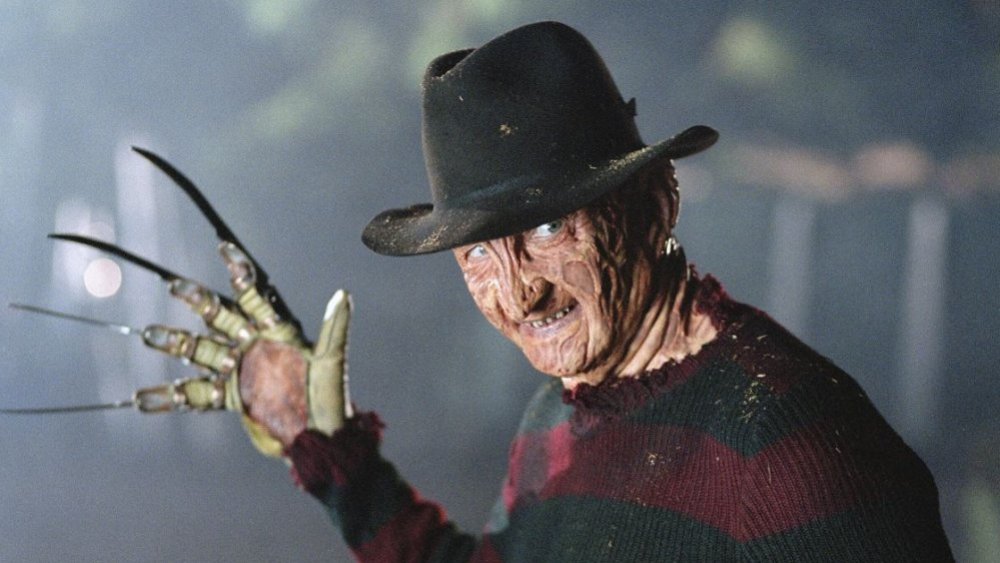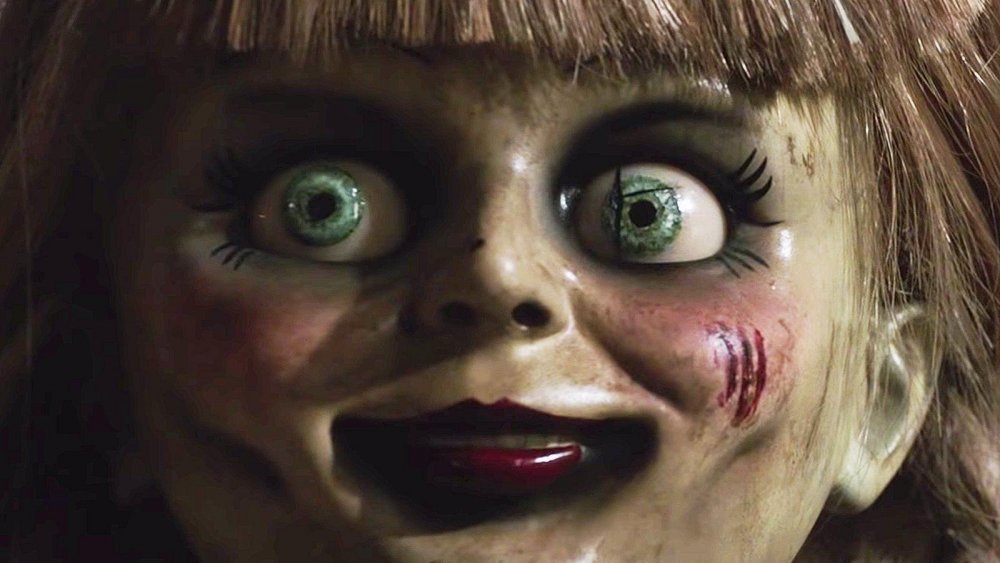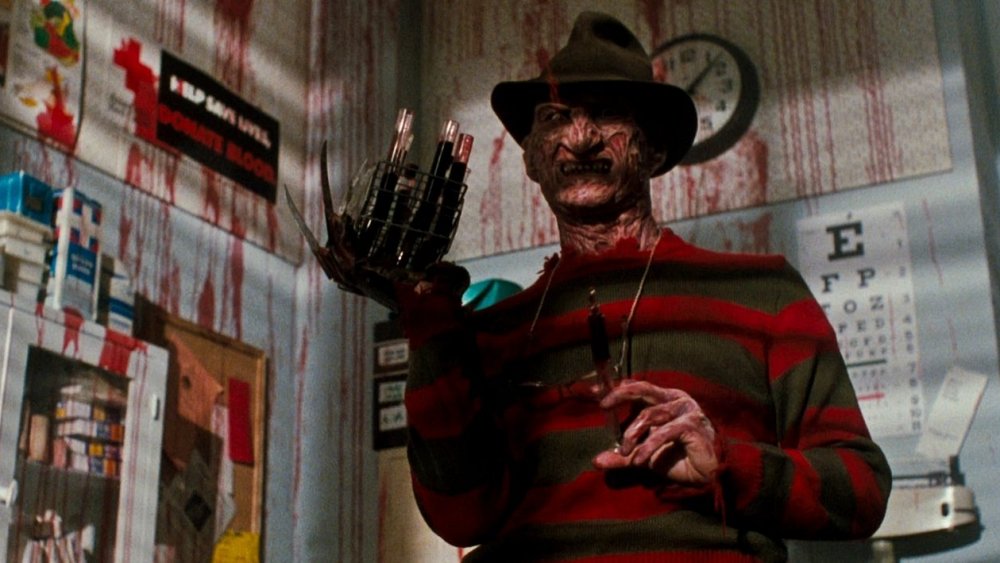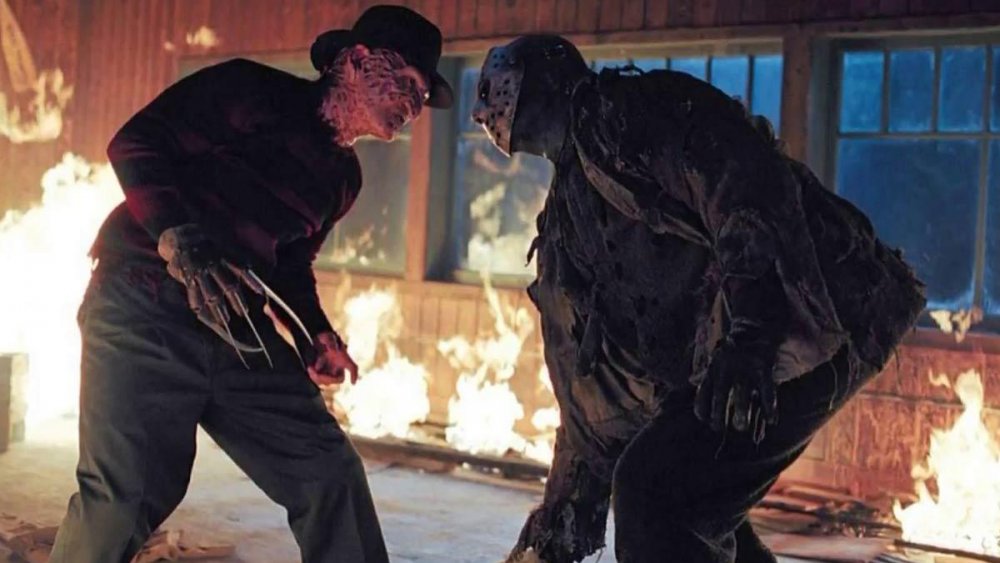Why There Hasn't Been A Nightmare On Elm Street Sequel In Over 10 Years
Wes Craven achieved massive success with 1984's A Nightmare on Elm Street. Not only did the movie introduce the world to a young Johnny Depp, it created the literal stuff of nightmares in Freddy Krueger, its iconic monster. The film went on to spawn eight sequels, a TV series, prose novels, and comic books. Surprisingly, however, Freddy Krueger hasn't graced the big screen since 2010's A Nightmare on Elm Street reboot.
This dearth of content isn't for lack of trying. There have been many in Hollywood who have attempted to breathe new life into the fearsome franchise, only to be blocked by circumstance at every turn. In an ironic twist on the franchise's hook, it seems that Freddy is indeed in danger of being forgotten completely as a new generation finds other places to focus their fear. We're here to examine the obstacles standing in the way of a new Nightmare on Elm Street movie — and, hopefully, to see if there's a path beyond them.
What would it be a sequel to?
First things first: A new Nightmare on Elm Street movie needs a new story. Right out of the gate, that makes things tricky. There are currently two canonical versions of Freddy Krueger, and the last time we saw both of them, they weren't in great shape.
First, there is the Freddy of the reboot, 2010's A Nightmare on Elm Street. This version of Freddy is played by Jackie Earle Haley, and is killed in that movie, only to return in a shocking twist ending some fans interpret as only semi-canonical.
Then there is the Freddy played by Robert Englund — ergo, every other portrayal of Freddy. He last graced the big screen in 2003's Freddy vs. Jason. Without getting into details, Freddy loses the titular fight to Jason Voorhees but remains alive ... sort of. It would be hard to bring Englund's Freddy back into the fold without addressing the Jason issue, which carries its own franchise sequel/reboot problems.
To put it bluntly, a sequel to either movie would require an explanation that could easily become goofy or convoluted. With one failed reboot already casting a shadow over the franchise, anyone looking to revive it better bring their A-game.
A disappointing remake
Without Robert Englund's menacing presence, the 2010 Nightmare on Elm Street reboot went nowhere. That's not to say it wasn't successful — it brought in $115 million worldwide on a $35 million budget — but its reviews were dismal and no one was up for a sequel.
"You don't see any of [the main characters] happy-go-lucky, they're never untainted," Englund said at the 2016 Belfast Comic-Con. "They're practically zombies from the get-go because they're haunted by Freddy, and I think that was a miscalculation. You need to see before and after so you can invest emotionally with the children."
That same year, actor Thomas Dekker attributed the movie's faults to studio interference. In a 2016 interview, he said, "It's a sales movie ... Even though the intentions of the artistic forces behind it were 'Okay, we're going to open up the mythology of Freddy Kruger, we're going to make him darker and actually explore the idea of child sexual abuse,' and those are all the things that interested me." Sadly, market forces won out, and those themes went unexplored.
Robert Englund is done
Synonymous with Freddy Krueger's villainy is Robert Englund, the actor who has portrayed him since the first movie. Many believe the 2010 remake failed because Jackie Earle Haley didn't bring the same flair to the role. Sadly, the original Freddy is now 72 and has said multiple times that he won't reprise the role ever again, save for brief cameos like the one he did in a 2018 episode of The Goldbergs.
"If I do a fight scene now it's got to be real minimal because I can't snap my head for eight different takes and different angles. My spine gets sore," he told Entertainment Weekly in 2017. "I can still be mean and scary, but I'm mostly relegated now to sort of Van Helsing roles ... So it's fun that the last moment of me ever playing Freddy is a wink to the audience."
Englund remains invested in the franchise. In an interview with Screen Geek in 2020, the man himself said he would love to see another reboot of the franchise, even if he's not a part of it. However, there's simply no denying that the Freddy Krueger people grew to love is no more. Does the character have legs without Englund? That, unfortunately, remains to be seen.
Making Nightmares without Craven
The mastermind behind the franchise, Wes Craven, died in 2015. Although he only directed two movies in the franchise, he is their originator, and largely considered the go-to person for all things Nightmare on Elm Street. In fact, many fans believe that doing any kind of film about Freddy Krueger without Craven is a fool's errand. He wasn't called "the Master of Horror" for nothing.
Take, for example, the much-maligned 2010 reboot. While many films fail, one can't help but notice that this particularly spectacular flame-out lacked any sort of contribution from Craven whatsoever. "I don't even know who's doing it and I'm not interested," he proclaimed in 2009. "It's actually really painful to think about it. It's the film of mine that I probably love the most, and which made the most money."
Generally speaking, Nightmare on Elm Street films without much input from Craven, like A Nightmare on Elm Street 2: Freddy's Revenge, have fared poorly. From now on, all Nightmare on Elm Street films will have to wrestle with Craven's absence. Whether this can be overcome remains to be seen.
A hellish prequel?
When a direct sequel isn't in the cards and a reboot has already failed, Hollywood often turns to prequels. It's not the worst idea when it comes to the Nightmare on Elm Street franchise, as Krueger has a built-in backstory.
As Englund put it in a 2020 interview with Syfy Wire: "I think that the franchise probably deserves a really good prequel. There's never been an entire movie devoted to Freddy before he was burned and the crimes and getting caught by the police and going on trial and getting away with killing children. We know that he was set free, so to me, the great part in the prequel is gonna be the lawyers, the lawyers that get him off .... and then, of course, the ending would be the vigilante parents burning him."
This was, in fact, the premise of the first episode of 1988's Freddy's Nightmares, an anthology TV series about the town of Springwood. There also exists an unproduced script written by John Saxon, who plays Lt. Donald Thompson in the original film, that portrays Freddy as an innocent man, framed by Charles Manson. Could all of this interest, talent, and track record add up to a satisfying prequel? It's a possibility — but actualizing it remains a risk no creator has been willing to take.
Development hell
Over the years, multiple scripts, pitches, and ideas for the Nightmare on Elm Street franchise have gone through early-stage development, only to fizzle out entirely. Most recently, Lord of the Rings actor and Mandy producer Elijah Wood has established himself as one person interested in getting a new Nightmare off the ground. However, he sees Robert Englund, who has announced his retirement from the franchise, as necessary to his vision. Wood imagines Englund's role as more of a passing-of-the-torch sort of thing, rather than the sort of active menace Englund has established himself as too old for. Perhaps that would ease the actor's reluctance, but that is far from guaranteed.
In the meantime, David Leslie Johnson-McGoldrick, a screenwriter with credits including episodes of The Walking Dead and two installments of The Conjuring franchise, was announced as the writer of a new Nightmare film in 2015. "It's still happening," he said in 2019, but "nothing is percolating just yet." As he has become involved in the blockbuster Aquaman movies, one can't help but wonder if we'll ever actually get to see his take on Freddy Krueger. Like so many franchises before it, Nightmare on Elm Street is stuck in a horror story of its own: Development hell.
Rights and ownership
Concern over rights, ownership, and copyright affects every film franchise. A Nightmare on Elm Street is no exception.
New Line Cinema held the rights to A Nightmare on Elm Street for decades. However, writers are able to retake ownership of their work after 35 years. As a result, Wes Craven's estate was able to legally retake ownership of the original film in 2019.
However, that still leaves questions as to what New Line Cinema can and can't do in terms of a new project, as well as what leeway the Craven estate has to field new offers. Is one entity capable of blocking the other? Moreover, while the Craven estate has domestic rights to the franchise, New Line Cinema still holds the international rights. This still gives the Craven estate major control — New Line isn't likely to release a Freddy film everywhere but the United States — but it remains an important factor.
Questions abound as to how complex rules of rights and ownership might affect any new Nightmare films. One thing that's clear? This is the kind of complicated stuff that tends to slow movies down.
Other monsters
New Line Cinema has a wealth of experience in producing and distributing horror films. A Nightmare on Elm Street might be the film that kick-started it all for the studio, but today, it is far from being New Line's only scary success.
Unfortunately, this might be part of what's keeping a new Nightmare film from being made. Since 2013, just three years after dropping the ball with the 2010 Nightmare reboot, New Line debuted The Conjuring. It was a massive hit, raking in a $319 million worldwide gross on a $20 million budget. Naturally, it spawned sequels, and now boasts its very own cinematic universe. As Conjuring movies like Annabelle and The Nun continue to make money, they take up more and more space in New Line's horror budget. As writer David Leslie Johnson-McGoldrick has said, "The Conjuring universe is sort of first and foremost on [New Line Cinema's] horror burner."
With The Conjuring films still going strong, it seems likely that squeezing Freddy into the mix has become even more unreasonable in the two years since Johnson-McGoldrick's statement.
A return to TV
MTV changed the horror game when it debuted Scream: The TV Series in 2015. Although it took some time to finds its legs, its second season was a widely-celebrated triumph, blazing a new trail for old horror properties.
Bloody Disgusting reported in November 2019 that the Craven estate is currently looking into the idea of an HBO Max series based on A Nightmare on Elm Street. Nothing is set in stone at this time, but it's an exciting prospect, to say the least. Could Freddy's comeback come from the small screen?
This has precedent in 1988's Freddy's Nightmares, the anthology TV series rooted in Nightmare on Elm Street lore. However, unlike the Scream series, episodes of Nightmares tell standalone stories. They all take place in Springwood, Ohio, of course, and Freddy plays a part in certain episodes, but generally speaking, the stories are self-contained. Modern fans would likely prefer a more typical series format, making the Scream approach especially intriguing. Is Freddy bound for HBO Max? Only time will tell.
Does Freddy need a Jason?
2003's Freddy vs. Jason forever changed both characters' franchises ... but not for the better. Jason has had a similar post-team-up fate as Freddy, starring in a less-than-successful 2009 remake of Friday the 13th before vanishing from the big screen for good.
Their epic battle at Camp Crystal Lake left Freddy decapitated and revealed the existence of Jason to the people of Springwood. While the movie gets bagged on, it deserves credit for bringing two iconic characters together in a bloody, action-packed showdown. However, it introduces a troubling problem: How do Freddy and Jason go back to being the monsters we know and love? With the world of both films now doubled, does Freddy need to cross paths with some other colossal force for audiences to take him seriously? Adding onto that, Freddy vs. Jason features a Freddy who has supernatural powers outside the dream world. The tried-and-true formula of killing Freddy once he's been yanked into our world has been rendered impossible. Was this an interesting upping of the ante or a foolish disposal of canon? No one has yet dared to answer that question.
